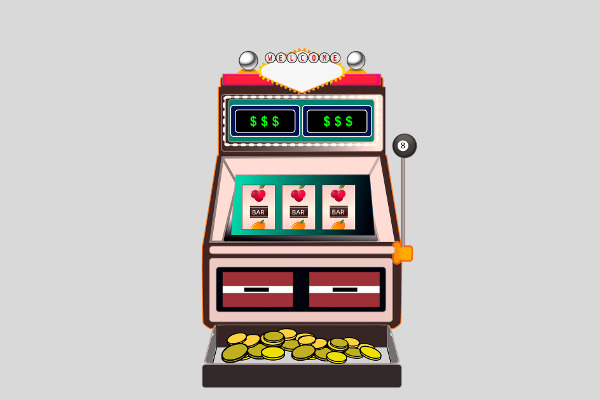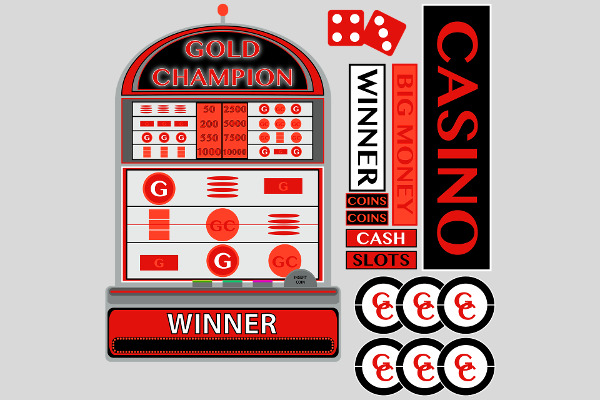The Latest Trends in Norwegian Online Casino Bonuses
 Record numbers of Norwegian players are signing up for new online casinos every month as platforms introduce fresh promotions and bigger welcome packages. The rise of dedicated Nordic gaming hubs has pushed operators to upgrade their offers, and players now enjoy more variety than ever. From revamped welcome deals to new game launches, the market continues to evolve fast.
Record numbers of Norwegian players are signing up for new online casinos every month as platforms introduce fresh promotions and bigger welcome packages. The rise of dedicated Nordic gaming hubs has pushed operators to upgrade their offers, and players now enjoy more variety than ever. From revamped welcome deals to new game launches, the market continues to evolve fast.
Fresh casinos are rolling out updated bonus structures, and this is where many players look for the best casino casinos in Norway. These offers are often linked to flexible wagering rules and faster withdrawals, making them more appealing for casual and experienced players. You can explore these options through platforms like best casino casinos in Norway (beste casino bonus norge), which helps players compare the latest welcome perks with ease.
New Casinos Entering the Norwegian Market
Several new casino brands have entered the scene this year, and each one tries to stand out with creative promotions. Operators are focusing on user experience, simple layouts, and quick registration processes. These updates help players jump straight to their favorite games without long forms or delays.
Another noticeable trend comes from casinos using lighter platforms that load faster and support mobile play. Norwegian players often enjoy quick sessions on phones or tablets, so these improvements help build loyalty. Many of these new platforms pair their launches with attractive freebies that include cashback perks, free spins, and deposit matches.
- Free spins on newly released slot games
- No deposit sign up rewards
- Exclusive VIP welcome bundles for returning customers
- Seasonal promotions tied to major game releases
Game Developers Boosting Bonus Value
Game developers are also shaping bonus trends by offering casinos early access to new titles. These new games often become the highlight of welcome packages, especially when they carry higher RTP rates or unique mechanics that attract attention.
Quotes from industry analysts show that themed slot launches often drive promotional bursts. As one analyst shared, “Players respond strongly to bonuses tied to familiar game themes.” This explains the sharp increase in seasonal and event based promotional campaigns.
Featured Game Types Influencing Promotions
Classic slots remain popular, but modern video slots with storytelling elements now dominate bonus lists. Casinos highlight these new titles inside welcome packages because they drive engagement. Table games are also gaining more promotional support as operators introduce live dealer options with small sign up rewards attached.
- Adventure based slot launches tied to special free spin bundles
- Live casino bonuses for new blackjack and roulette rooms
- Daily jackpot games that refresh promotional calendars
Creative Promotional Campaigns Taking Over
Seasonal campaigns are now becoming a standard for Norwegian casinos that want to keep their players excited. These campaigns follow major events such as summer holidays, winter celebrations, or sports tournaments. Each campaign comes with short term rewards that refresh the overall gaming experience.
Casinos are also shifting toward personalized bonuses. Players now receive targeted offers based on gaming habits. Someone who prefers slot games might get a free spins pack, while a table game fan may receive a small chip bonus. This approach adds value and keeps promotions relevant and fresh.
Players who want to understand how to take full advantage of these evolving bonus structures can explore guides like this overview on maximizing bonuses, free spins, and no deposit offers which provides helpful insights on optimizing rewards.
What This Means for Players
All these updates give Norwegian players more choice and better long term value. To make the most of these trends, players should compare bonuses, read conditions carefully, and choose casinos with transparent terms. Many of the new platforms also provide better customer support and faster payout systems to complete the experience.
Understanding the latest trends helps players find better offers and enjoy smoother gaming sessions. Bonus structures continue to change as casinos introduce new games, update platforms, and adjust to player feedback. Staying informed gives every player an advantage when choosing where to play next.
Conclusion
Norwegian online casinos are moving fast, and players now have access to more generous welcome packages than ever before. These include unique game driven rewards, flexible conditions, and carefully designed promotional events. As these trends grow, platforms that offer updated guides on the best casino casinos in Norway will remain valuable resources. The coming months will likely bring even more creative bonuses as new casinos launch and developers release stronger game titles.









 Unlicensed online casinos grabbed 71 percent of Europe’s gambling market in 2024, pulling in over €80 billion in revenue. This huge shift has regulators scrambling and players chasing bigger thrills. Picture the neon glow of a slot machine that never sleeps, bets that soar without a cap, and wins that feel endless. Yet, beneath the sparkle lies a storm of debate. Europe lost €20 billion in taxes last year alone to these shadow operators. As borders blur in the digital age, the call for freer play grows louder. What happens when the house rules bend just enough to let fortunes flow?
Unlicensed online casinos grabbed 71 percent of Europe’s gambling market in 2024, pulling in over €80 billion in revenue. This huge shift has regulators scrambling and players chasing bigger thrills. Picture the neon glow of a slot machine that never sleeps, bets that soar without a cap, and wins that feel endless. Yet, beneath the sparkle lies a storm of debate. Europe lost €20 billion in taxes last year alone to these shadow operators. As borders blur in the digital age, the call for freer play grows louder. What happens when the house rules bend just enough to let fortunes flow? Odds are more than just a way to show potential payouts, they also reflect how likely a bookmaker such as 22Bet betting (22Bet scommesse) thinks an outcome is. When you understand how to convert odds into implied probability, you can judge whether a bet offers value or if the price is too steep. Let’s break it down step by step.
Odds are more than just a way to show potential payouts, they also reflect how likely a bookmaker such as 22Bet betting (22Bet scommesse) thinks an outcome is. When you understand how to convert odds into implied probability, you can judge whether a bet offers value or if the price is too steep. Let’s break it down step by step.







 Nearly half of baccarat revenue in major Asian markets now comes from side bets. This shift reflects a fast growing trend among Thai players who want more excitement and more ways to win during each round. These add on wagers create a new layer of tension that keeps players engaged for longer periods. Many Thai users first explore side bets after reading guides on platforms like FINN Bet บาคาร่า, and this early exposure has pushed these features deeper into the local gambling culture.
Nearly half of baccarat revenue in major Asian markets now comes from side bets. This shift reflects a fast growing trend among Thai players who want more excitement and more ways to win during each round. These add on wagers create a new layer of tension that keeps players engaged for longer periods. Many Thai users first explore side bets after reading guides on platforms like FINN Bet บาคาร่า, and this early exposure has pushed these features deeper into the local gambling culture. 55five Lottery Indonesia 2025 brings fresh energy to the gaming world. Players across the archipelago now enjoy smoother experiences with these changes. Excitement builds as features enhance every draw and spin. Imagine the thrill of better odds and quicker rewards. This year marks a turning point for online lotteries in Indonesia.
55five Lottery Indonesia 2025 brings fresh energy to the gaming world. Players across the archipelago now enjoy smoother experiences with these changes. Excitement builds as features enhance every draw and spin. Imagine the thrill of better odds and quicker rewards. This year marks a turning point for online lotteries in Indonesia.

 Unlike many Western nations, South Korea boasts a small legal sports betting industry. The government-run Sports Toto offers several betting choices, including volleyball, baseball, basketball, and soccer. Still, these choices are small compared to the broad spectrum of sports accessible on offshore betting platforms.
Unlike many Western nations, South Korea boasts a small legal sports betting industry. The government-run Sports Toto offers several betting choices, including volleyball, baseball, basketball, and soccer. Still, these choices are small compared to the broad spectrum of sports accessible on offshore betting platforms.





 There will also be an improvement in the ownership, safety, and transparencu of in-game assets like virtual currency and collectibles. Additionally, there will be facilitation of safe transactions through a blockchain-based smart contracts. It will also allow users to trade and gain from their assets.
There will also be an improvement in the ownership, safety, and transparencu of in-game assets like virtual currency and collectibles. Additionally, there will be facilitation of safe transactions through a blockchain-based smart contracts. It will also allow users to trade and gain from their assets.








 As it is, gambling in South Korea is a tricky venture because local gamblers have to make sure they are playing only on trustworthy sites. They are at risk of either being discovered for illegal gambling; or of being scammed by eat and run online gambling operators. That is why when we play to gamble online, we limit our choice of casino or 우리카지노 (ulikajino) to the selections recommended by a trusted online casino community. The members of this group are mostly verifiers of eat and run
As it is, gambling in South Korea is a tricky venture because local gamblers have to make sure they are playing only on trustworthy sites. They are at risk of either being discovered for illegal gambling; or of being scammed by eat and run online gambling operators. That is why when we play to gamble online, we limit our choice of casino or 우리카지노 (ulikajino) to the selections recommended by a trusted online casino community. The members of this group are mostly verifiers of eat and run  Obviously, gambling with real money is a serious transaction especially if it takes place online. The first rule of course is to play only in online gambling sites that are licensed by reputable Gambling Commissions, whose primary goal is to ensure the protection of consumers who gamble online.
Obviously, gambling with real money is a serious transaction especially if it takes place online. The first rule of course is to play only in online gambling sites that are licensed by reputable Gambling Commissions, whose primary goal is to ensure the protection of consumers who gamble online.

 When you work in a specific field long enough, your head becomes clogged with various facts and figures. It’s like a junk drawer that you keep filling with things until it can’t close properly. These fascinating and entertaining facts about online gambling on 메이저놀이터 are as unpredictable as the winning numbers in a roulette game.
When you work in a specific field long enough, your head becomes clogged with various facts and figures. It’s like a junk drawer that you keep filling with things until it can’t close properly. These fascinating and entertaining facts about online gambling on 메이저놀이터 are as unpredictable as the winning numbers in a roulette game.


